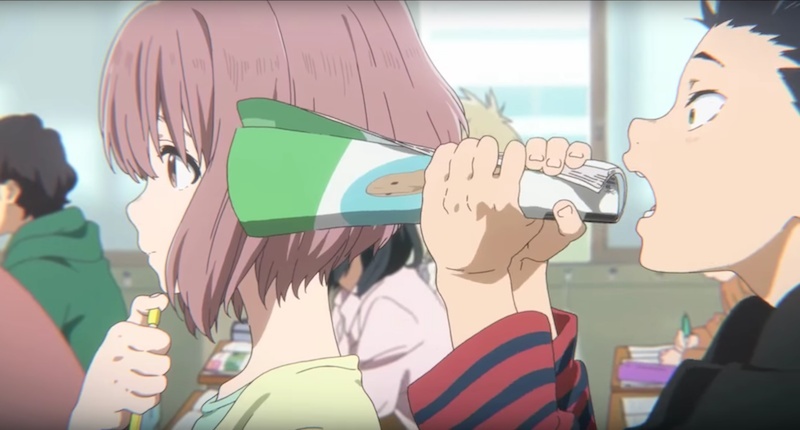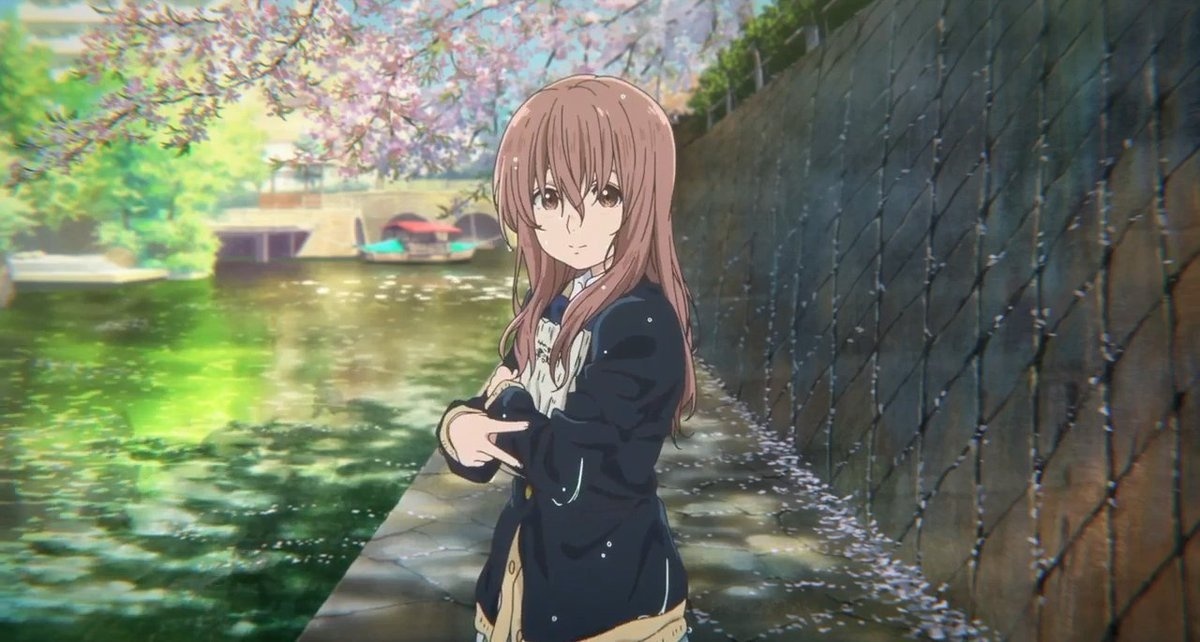
A Silent Voice (UK Rating: 12A)
Glasgow Film Festival 2017 gave anime fans a unique opportunity: to see the freshly translated movie A Silent Voice ahead of its UK launch, with the added bonus of a Q&A with the Director, Naoka Yamada, also known for her work on K-on. The movie's Japanese title is The Shape of Voice, which is actually a much better title than the final localised one, which will be explained later in the review, and which was probably picked to fit it in with the localised, seven volume manga that goes by the same name. It's a two-hour exploration into many themes, and is due at cinemas from 15th March for exclusive screenings, with further select showings from 17th March.
The premise of the story is something rather heavy. It tackles the effects of bullying and the long term effect it has on both the bullied and the bully, to an extent. It's an emotional tale that focuses on a boy named Shoya Ishida, when he was young he was a bully, although not intentionally, and this eventually backfired on him and Shoko Nishimiya, a deaf girl, who tries her best to befriend her classmates. Not wanting to spoil anything about the story, there are only certain things that can be said. The story isn't one of love; it does feature and focus on love, but to a different means. The girl whom he bullied, and the friends he loses, all have interactions with him over the course of the movie and it's a real emotional rollercoaster.
Naoka Yamada stated during the Q&A that she believes all of her characters are like real people. By thinking this, it allows her to create a real empathetic bond. She admitted to crying during some of the harder scenes, and the whole audience was in a similar boat during the screening. There was cheering, gasps, and one horrifying moment where the movie is silent and everyone takes a sharp breath of disbelief. It's a very easy film to get sucked into as the character drama is so well presented. It covers deafness, communication, suicide, family, love, friendship, bullying, sadness, elation, among many other themes, and tackles them realistically.
Shoya plans to kill himself in the opening scene - plans it down to the day. Then, at the last moment, he stops when he is snapped out of his trance state by some children playing with fireworks. Upon returning home, his mother is absolutely distraught and makes him promise to never try and kill himself ever again (which was the scene that the Director was most touched by). It's a really hard hitting scene and starts the story off by creating wonder. Why is he in such a difficult state? What could have happened? Before the movie cuts to past Shoya in an opening accompanied by "Our Generation" by the Who. Shoya was popular, but things very quickly change when he becomes a bully.
The breathtaking story is accompanied by beautiful, vibrant, and charming visuals. Kyoto Animation really pulled out all the stops and produced an amazing piece of art. Every small detail is fantastically articulated, the overall cinematography with effects such as depth and pan shots is superbly recreated in the 2D animated medium. The movements are super smooth and it presents the aforementioned sign language in a very clear and easy to understand way. There is also a lot of symbolic imagery, like crosses over the faces of the people that have shut Shoya out, or people he doesn't want to interact with.
The acting is great, too. The actor playing Shoko Nishimiya does a very convincing approximation of a deaf person trying her best to learn to talk clearly. All of the voice acting is full of emotion and may not translate well into an English dub, however. The movie was subtitled, most of which was great, but some lines seemed weird like characters were speaking in third person occasionally. Having seen two different translations, the latest version was the best, but it still had a few of typos.

The Director also made an interesting point about the flower imagery throughout the movie. Each flower was carefully picked to complement the scene. Each had its own meaning; for example, roses represented love. They fed the meaning of the emotions in each scene they appeared in; for instance, blue flowers could also have suggested innocence and calm. It is a really nice touch that reinforces the events.
A Silent Voice had a lot of competition, as it was released close to Makoto Shinkai's latest movie Your Name and, therefore, a lot of people missed their chance to properly get to know the story. However, it presents a much more grounded, less pot-holed story than its competition (incidentally, Your Name is also fantastic).
Exceptional - Gold Award


 Sign In
Sign In 26.02.2017
26.02.2017
 Subscribe to this topic
Subscribe to this topic Features
Features





 Top
Top

